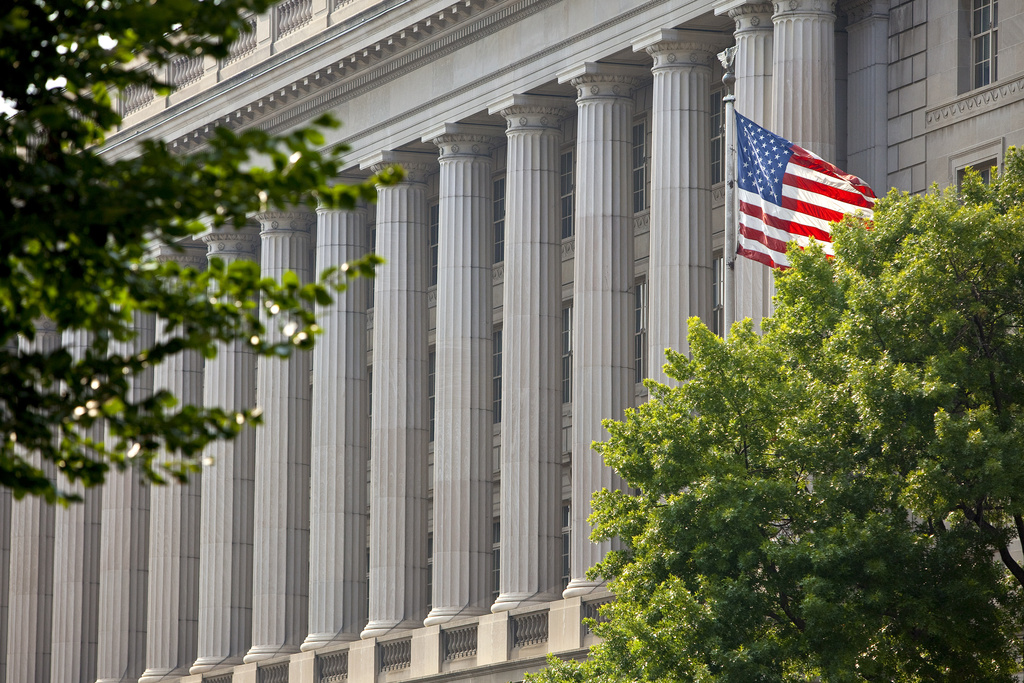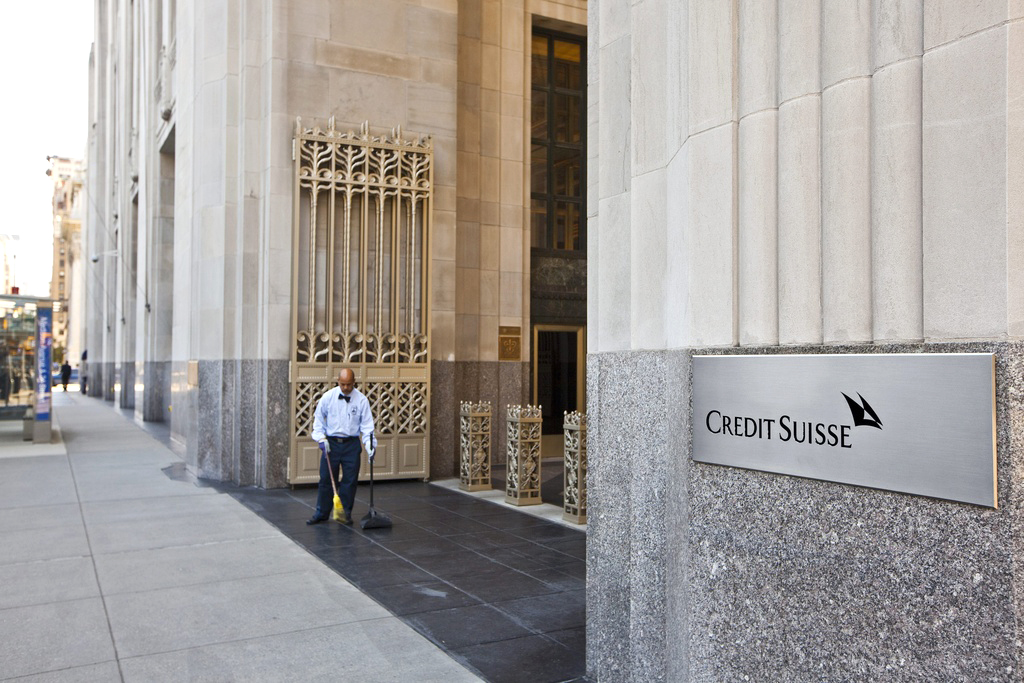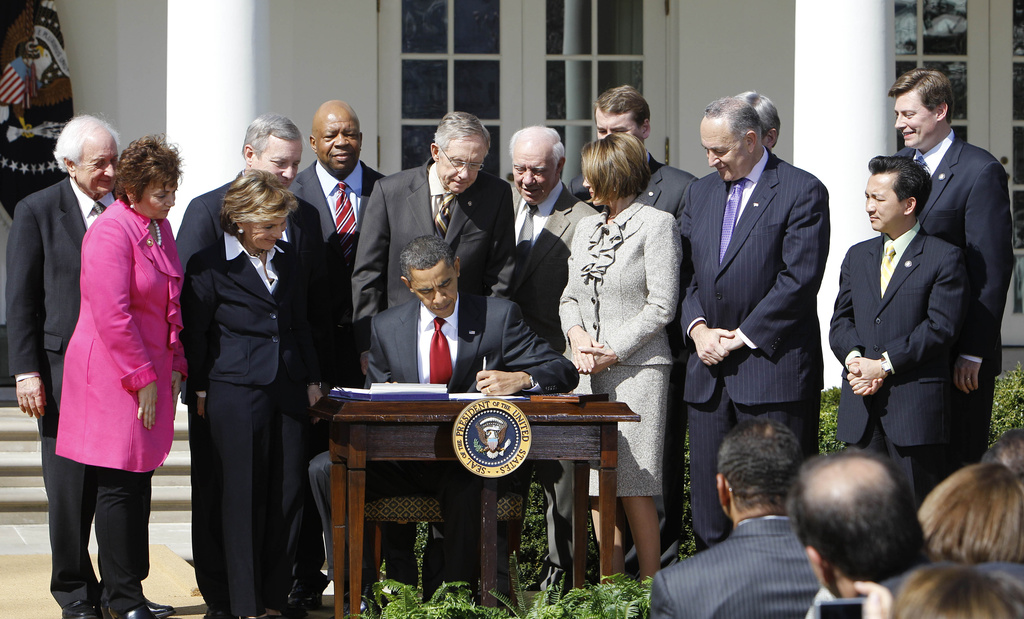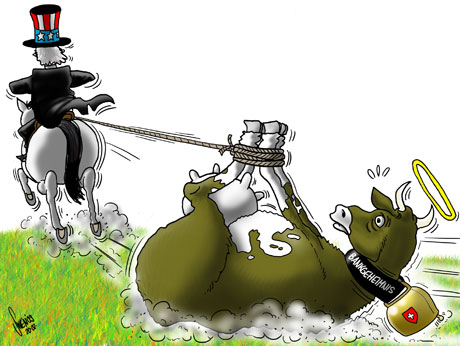US tax probe tightens noose on Swiss banks

Swiss banks are coming under increasing pressure in the United States as a second wave of arrests and indictments implicated Credit Suisse in tax evasion.
The renewed offensive by the US tax authorities has alarmed the Swiss banking community, sparking fears of a second assault on banking secrecy and rumours regarding which banks may be next to face the music.
One bank that has suffered from adverse conditions in the US is the Neue Zürcher Bank (NZB), that closed down its private banking operations in 2009 after a former employee was indicted in the US on tax evasion charges.
The bank then announced last week that it would also end brokerage activities, citing “increased complexity of background regulations and the corresponding legacy issues from NZB’s private banking business, as well as the more difficult parameters of cross-border banking business between Switzerland and the US”.
Swiss banks have faced continuous problems since UBS put its hands up to aiding and abetting clients to evade US taxes two years ago. The admission shot a huge hole through Swiss banking secrecy laws when the government was forced to hand over 4,450 UBS client files to the US authorities.
UBS round two?
Using this data, plus evidence from some 15,000 US citizens who admitted evasion during a tax amnesty, the US tax authority (Internal Revenue Service IRS) has put together more prosecutions that currently focus on Credit Suisse.
On Tuesday, a former Credit Suisse client told a US court that he had used the bank and UBS to illegally hide money from the tax man.
Two weeks ago, four current and former Credit Suisse employees were indicted in absentia on tax evasion charges, while another is in custody in the US. One of the accused told Reuters that Credit Suisse had always known about his activities.
“I always acted in the name of the bank and according to their instructions,” he said. “It’s not the case that I did anything independently, the bank was always informed and my actions were checked by my bosses.”
While Credit Suisse itself has not been named in the latest round of prosecutions, the media and other observers believe the bank may soon face the same fate as UBS. But Martin Naville, head of the Swiss-American Chamber of Commerce disagrees.
“The UBS treaty was not an amnesty and we have always said that the situation between the IRS and foreign banks is not over,” he told swissinfo.ch.
“What we are seeing is the aftershock of the UBS case. This is certainly not UBS round two that would pit the Swiss government against the IRS.”
Individuals, not banks
On the face of it, there are similarities between the Credit Suisse and UBS cases. Some of the recently indicted bankers and the former NZB fugitive used to work for UBS.
But crucially, the IRS has at present failed to establish a link between the actions of individual employees and the leadership of Credit Suisse.
There have been many suggestions that the IRS will turn its attention on smaller private banks that allegedly opened their doors to UBS account holders to escape declaring illicit funds to the US authorities.
“There has long been a belief that other Swiss banks have to some extent facilitated tax fraud and the IRS is now going after them,” US tax lawyer Asher Rubinstein told swissinfo.ch.
Regulatory pressures
Martin Naville believes many tax cheats may have pointed the finger at Swiss banks during the recent tax amnesty, a voluntary disclosure scheme that is soon to be repeated.
“It appears that some smaller banks advised clients not to participate in the voluntary disclosure scheme,” he told swissinfo.ch. “They may have thought that they could reap the benefits of a windfall, but anyone who thought this was naïve.”
In the meantime, other Swiss banks have exited the US markets because of tough changes to disclosure rules. Foreign banks are now obliged to report on clients who buy or hold US securities and could soon be forced to divulge the details of those that inherit such stocks and bonds.
Banks Wegelin and Sarasin are among those that feel the Foreign Account Tax Compliance Act (Fatca) and changes to estate tax regulations would place them under too great a burden.
Banking secrecy was enshrined in Swiss law in 1934. Switzerland has been under continuous attack since the outbreak of the financial crisis for helping foreign tax evaders hide their assets.
The OECD placed Switzerland on a “grey list” of uncooperative tax havens in April 2009.
The Swiss were removed from the list six months later after renegotiating several double taxation treaties. In February 2011, the Swiss government relaxed the terms of legal assistance further but still refused to automatically transfer information to tax investigators without proof of crimes.
The most damaging tax evasion case involved the activities of UBS bank in the US. In February 2009, UBS was fined $780 million after admitting helping US citizens dodge taxes. It also handed over data of 285 account holders.
Last year the Swiss parliament ratified a 2009 deal to transfer 4,450 UBS client files to the US – in effect violating Swiss banking secrecy to prevent a ruinous court case for UBS.
Several CDs of stolen client data have been stolen from Swiss banks in the past two years and sold to foreign tax investigators.
A former employee of the HSBC private bank in Geneva ran away with client data that he handed over to the French authorities in 2009.
Several CDs of stolen Swiss banking data have been bought by the German authorities, resulting in two separate raids on German offices of Credit Suisse.
Last year, Switzerland agreed to negotiate deals with Germany and Britain that would compel banks to pay withholding tax on offshore Swiss accounts.

In compliance with the JTI standards
More: SWI swissinfo.ch certified by the Journalism Trust Initiative





You can find an overview of ongoing debates with our journalists here. Please join us!
If you want to start a conversation about a topic raised in this article or want to report factual errors, email us at english@swissinfo.ch.